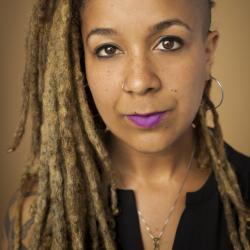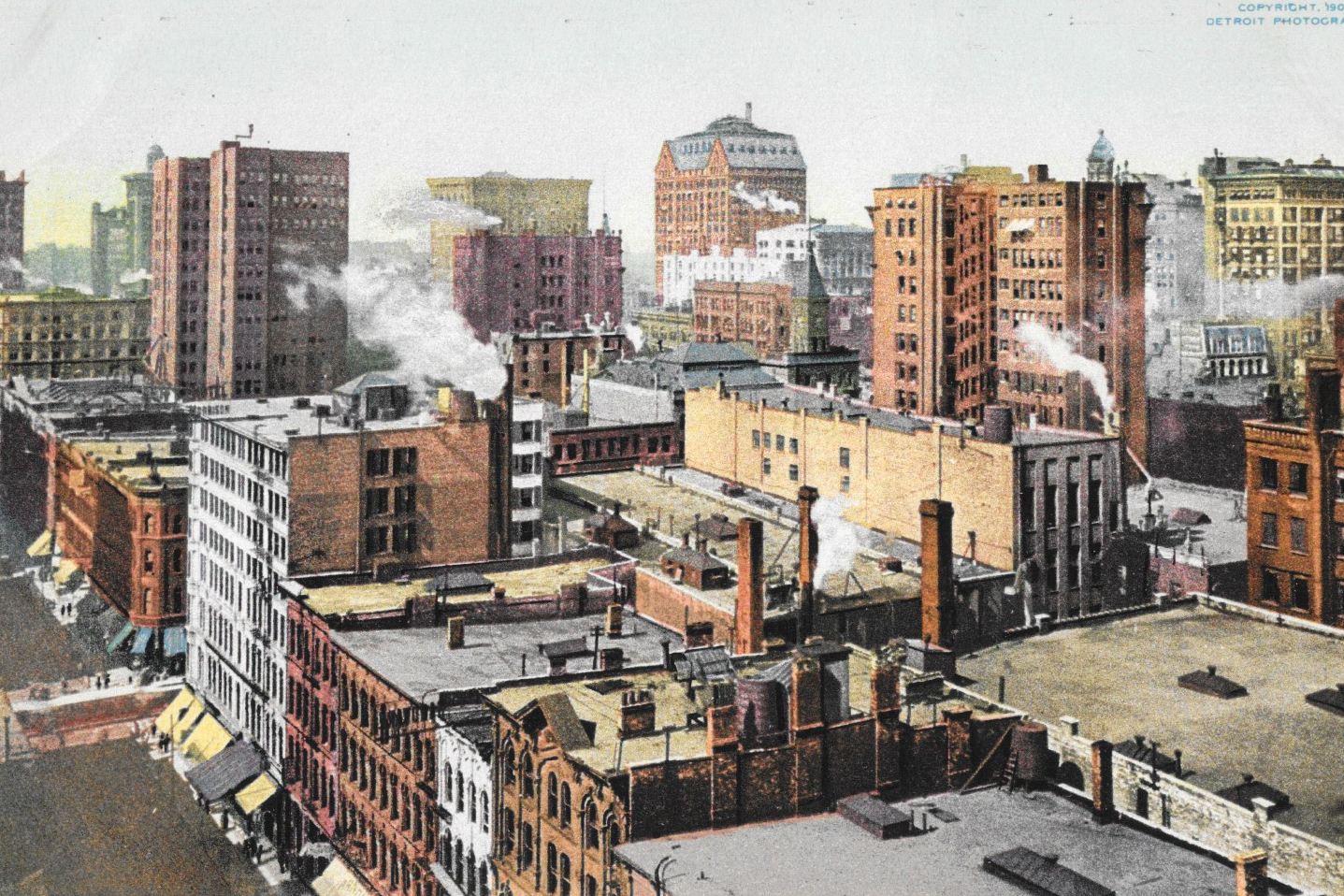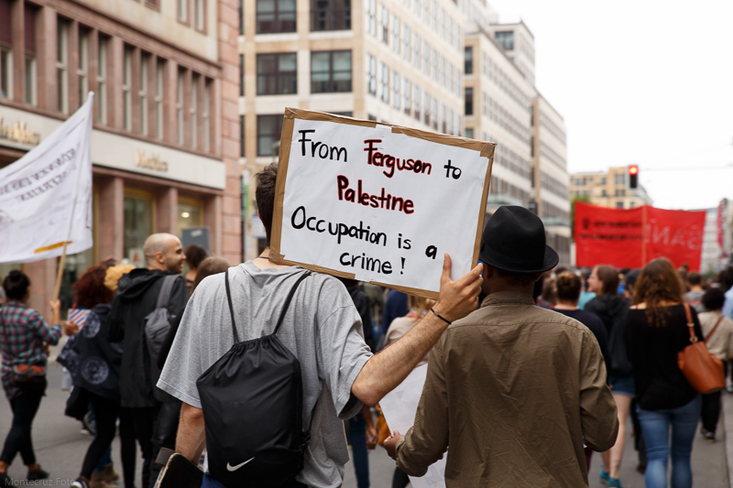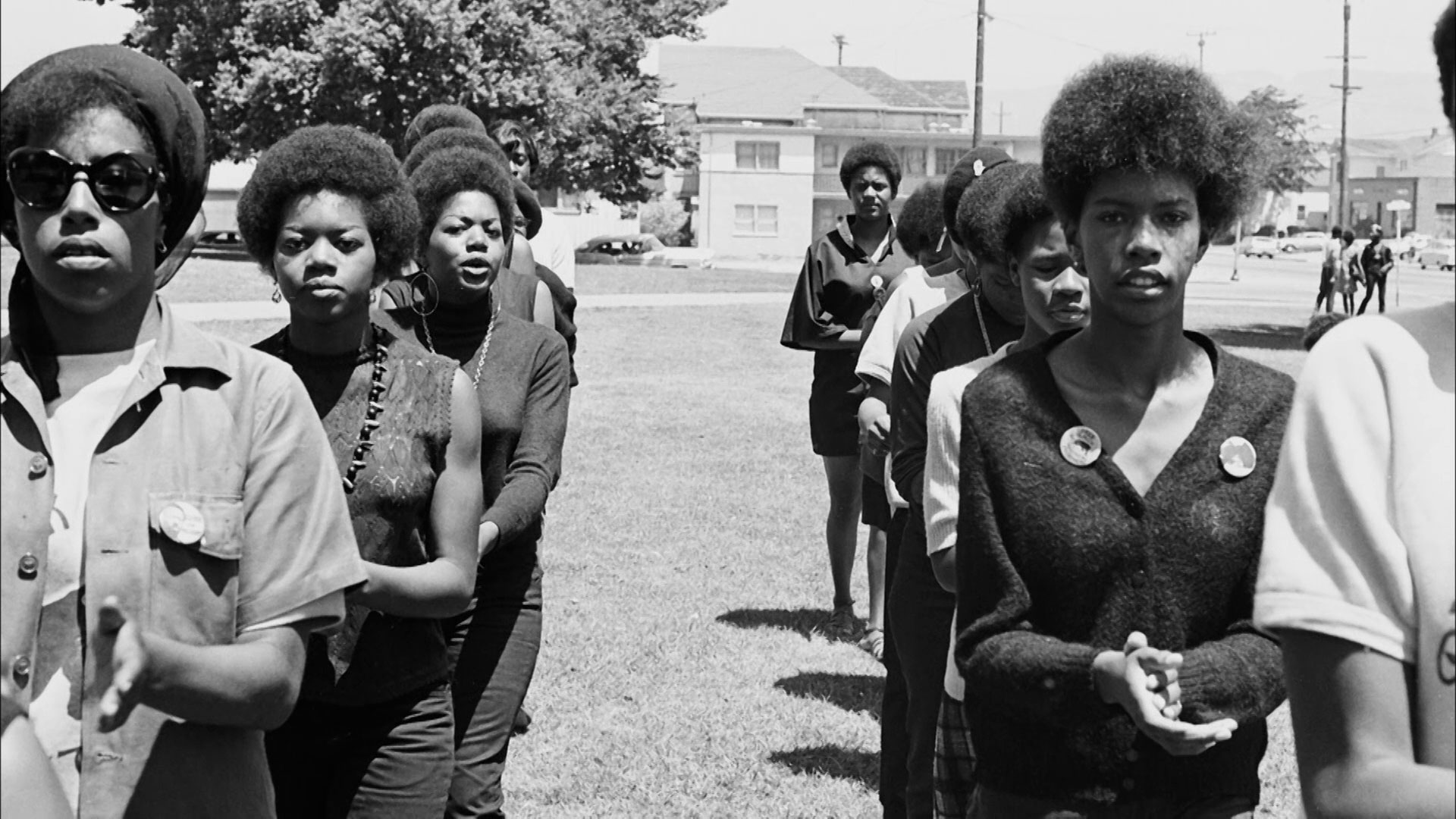The following is an edited and expanded version of opening remarks from Robyn Maynard at the 2022 Abolitionist Network Gathering. Robyn provides context for the abolitionist movement in Canada and explains how deeply intertwined international systems of oppression make it necessary to create an intertwined international abolitionist movement.
The organizers asked me specifically to talk today a little bit about the transnational contours of abolition and anti-colonialism. First, I'm going to speak briefly about what moving beyond a US-based paradigm of abolition means from a Canadian perspective, and then I'm going to share some thoughts on how we can think about abolition and anti-colonialism both here on Turtle Island and transnationally.
I live in Canada, where, because of US cultural imperialism and a Canadian national mythos of racial innocence, the US framework is one that is central to how we are taught to think about race. Though this is beginning to change after generations of Black activism, we are by and large taught here in Canada that chattel slavery, segregation, and structural racism –– all Canadian realities, mind you ––are solely US issues. This same vision is widely peddled internationally, as well. In high school and university, we are largely learning about policing, race and gender through a US lens, both in terms of the history of anti-Black statecraft and the histories of Black struggle. That's historically been so even within many parts of progressive, left and radical struggles, where folks take up the history of the Black Panthers but not Black liberation movements that had been based here. This is the case even as our communities have long been protesting the policing and incarceration, of Black folks, and the way that our communities are being ripped from our homes by child welfare agencies and arrested in schools.
The false narrative of national innocence obscures the past and present conditions of state violence so acutely experienced by Black people, but it also makes abolitionist organizing, scholarship, and thought more challenging. I'm by no means a Canadian nationalist. I mean instead that organizers need to understand the specificities of the place that we live: both in terms of how institutional racism works, as well as our own movement histories. And of course, the material conditions that we as Black folks and abolitionists are facing here are tangibly connected to the operations of the carceral state in the US. In fact, there is often significant collaboration on and between harmful state institutions across the border that bear a closer attention.
But at the same time, we do not live in a carbon copy of the US: there are important differences in the political and governing structures of each place that stand, at times, to impact the conditions of our organizing. For that reason, political education is something that I have valued highly for most of my life, it has always been central to my praxis. This includes transnationalizing some of the really valuable analyses and information that we get from Black abolitionist feminists in the United States. And, it means learning from the analyses of African Nova Scotian, Caribbean and African feminists here, like Marlene Green, Beverly Bain, Dionne Brand, Lynn Jones, and many others. Here on the home front, we need to both know our enemies and learn from those who came before us.
As a Black woman living in a settler colony, it’s become increasingly important for me to think about the connections between Black liberation, abolition, and anti-colonial struggle. I'll talk about anti-colonialism at home and then share a few thoughts about its global scope.
Canada, like the US, is a country with a history tethered to slavery, Indigenous genocide and settler colonialism. These twin apocalyptic violences are acutely reflected in this country's carceral sites. Across Canadian carceral institutions, we can see slavery's afterlife in jails and prisons, as well as those institutions that are made carceral: schools, child welfare. In my own work, I trace the legacy of enslavement faced by Black communities, highlighting that its necessary that we understand that policing is as bound up, too, within this country's history of Indigenous genocide, including how the RCMP, formerly the North-West Mounted Police, was explicitly created to help clear the Plains of self-sufficient Indigenous communities and to entrench state control over Indigenous people's lands and resources.
Emily Riddle, an Indigenous penal abolitionist, puts it this way,
"Policing was established on this continent in part to aid in the theft of our territories, later upholding laws that criminalized our ceremonies and stole our children. Police will not help us address the crisis of Murdered and Missing Indigenous women and girls. They contribute to this violence. They invade our sovereign territories to ensure pipelines are built. To me, the case for abolition is clear."
I often repeat that there is a need to attend to the complexities of struggling for Black liberation on stolen land, that you can't forge Black freedom on the unmarked graves of others. (This is referencing the ongoing discovery of unmarked Indigenous children's graves across former sites of Canadian residential schools.) In the year of 2020, as we saw uprisings in support of Black life across Canada, in response to police killings of Black folks here: Sheffield Matthews, Regis Korchinski-Paquet. Korchinski-Paquet was in fact an Afro-Indigenous woman. And that same spring and summer we also saw the police killings of an Indigenous teenager, Eishia Hudson, and of an Indigenous woman, Chantel Moore, in the context of a wellness check in 2020.
In Manitoba and Saskatchewan, Indigenous adults make up 75% of jail admissions. When we think about abolition of police and prisons, Indigenous struggles against ongoing settler colonialism can’t be effaced, not here or anywhere.The mass criminalization of Indigenous peoples and particularly the ongoing criminalization of land defenders and the broader #LandBack movement make that clear. As Riddle and countless others have long insisted, policing is being used to retrench corporate ownership of Indigenous lands. This needs to be understood as a crucial part of how racial capitalism is taking place here.
Before the pandemic and the mass uprisings for Black life, there had been massive protests across Canada in support of the Wet'suwet'en land defenders, who were and are being criminalized for opposing the Coastal GasLink (CGL) pipeline that would cut their territory in two. The RCMP, Canada's national police force, spent almost $20 million policing Wet’suwet’en land defense between January 1, 2019, and March 31, 2021. It’s important to note that much of this was taking place during a period of unprecedented support for the call to #DefundThePolice. Mariame Kaba, Ruthie Gilmore, and Andrea Ritchie all remind us that abolition is about building. If we think about the centrality of policing to land theft and colonial violence then it helps us ask different questions, too, such as: what does it mean to build more liveable futures in the context of ongoing colonial violence?
I was working with some brilliant, dedicated people representing around a dozen organizations over the year 2021, to put together a declaration called Choosing Real Safety: A Historic Declaration To Divest from Policing and Prisons and Build Safer Communities for All. We were trying to think about how to continue forwarding some of the work and momentum of the 2020 Uprisings, when we saw many organizations voicing support for the movement for Black lives, issuing “Black Lives Matter” statements without necessarily committing to any institutional change. Of course, for some organizations this was only meant to be window dressing, but there was and is, I believe, genuine goodwill in others to attend more meaningfully to racial justice. So the question was, in a time where policing was finally being understood more widely as a form of racial violence, how to build from this, and how to do so from an abolitionist, anti-colonial, Black liberation, and racial justice perspective.
We worked collectively to write a declaration that could help organizations go beyond symbolic gestures in support of “anti-racism” and make firmly abolitionist commitments. The modest goal was to get organizations spanning health, housing, law, labor, LGBTQI rights, and racial and social justice more broadly to commit to abolitionist principles under the three-prong strategy of Defund/Dismantle/Build, as a way to inform their work and political commitments going forward. It was important to us that in addition to a careful attention to rectifying the crisis of anti-Blackness, an anti-colonial approach was centered and integrated throughout the statement.
Over the course of a few months, with valuable leadership from the members of Free Lands Free Peoples, a prairie-based Indigenous penal abolitionist organization, we put together a way of conceptualizing of Defund/Dismantle/Build that took the responsibilities that come from living on stolen land seriously. We wanted to offer material examples of what it means to commit to dismantling harmful carceral institutions, #ChoosingRealSafety and building sustainable, life-affirming communities and abolitionist futures while living on stolen land.
I’ll just read a few points from the declaration by way of example:
- Enact the return of the land to Indigenous peoples, Land Back.
- Honor existing treaties and Indigenous interpretations of treaties.
- Honor Indigenous sovereignty, including Indigenous governance and non-carceral Indigenous legal orders.
- Invest in land redevelopment for decommissioned police and prisons under the guidance of Indigenous nations on whose lands the buildings sit.
This is just a springboard, or one point of departure among many others, for what it can look like to try to think about abolition grounded in an ethical relationship to place.
I’ll move now from anti-colonialism and abolition at home to a more transnational lens. I frame this as a form of responsibility that derives from living here in Canada and the US , a responsibility that radiates outward. For those of us in the imperial center, we are still beneficiaries of empire, even if we are its internal domestic enemies, and the benefits are grossly unevenly distributed. That means something I hope that we, as abolitionists, can hold tightly to as we work to build more liberatory futures. One important tenet of the abolitionist vision that is captured in Defund/Dismantle/Build is shifting money away from policing and prisons and moving public money into supports for community. This demands re-organizing and dramatically transforming the societies we live in so that they can be focused on care rather than corporate profits and the mass inequality and carceral repression that they require.
Much of this necessarily happens at the scale of the city, the state/province, the nation because a lot of the wealth being siphoned away from our communities into bloated police budgets derives from the resources stolen from Indigenous people living here. Carceral controls facilitate the exploitation of labor from the Black and migrant and working class and Latinx workers in the Global North. But still, to think carefully about re-appropriating wealth from repressive institutions and directing resources back into our communities demands too that we stretch our analyses into the global. If we think carefully about where public money is coming from, and where many resources our societies rely upon originate, we see that ‘national’ wealth is no such thing. Slavery and empire-building were violently transnational projects, and their legacies, too, span unevenly across geopolitical space: wealth, resource, labor and land expropriation are concentrated most significantly in poor and working-class communities in the Global South.
It is this transnational looting that makes possible most of the comforts the Global North has come to know. We are living in the spoils, however inequitably distributed, of wealth pillaged from the land and resources of folks in the Global South, thieved from our Black, Indigenous and racialized kin globally.
I’m speaking to you from Canada, where 75% of the world’s mining companies are headquartered. This means that Canadians’ pension funds, our public universities’ investments, to name only a few examples, are coming from profits derived from lives and livelihoods that are stolen from other people in our names. So, this country’s national wealth and infrastructure is deeply entangled with extractive capitalism that is, with a collaboration of Western states and multi-national corporations, wreaking havoc on the world’s disenfranchised communities. For that reason, I will continue to beat this drum: redistribution in the context of uninterrupted imperialism is not going to put an end to harm, it will only push harm beyond national borders and out of sight. This means that to be ethical, in the deep sense of the word, the horizons of our abolitionist analyses and visions must be transnational. I say that to remind us to think beyond national borders when we think about the idea of defunding carceral structures and funding our communities. Those of us in the heart of the empire with our eyes on abolition need to continue to ground ourselves in the past and present histories of imperialism and neo-colonialism.
I think the last thing I'd want to say is that we're living in a time where the policing of land defenders everywhere is intensifying: from the repression faced by the Guyanese women of Red Thread fighting gendered and extractive violence in the Caribbean, to the Haudenosaunee land defenders at 1492 Land Back Lane, to the communities working against extraction and land destruction on the Niger Delta. Whether or not land defenders identify as abolitionists, we all have a lot from those on the frontline of those struggles that are trying to build more livable futures while situated against the carceral arm of racial-colonial capitalism.
Just as US police violence is deeply intertwined with Israeli apartheid and the ongoing theft of Palestinian territories, Canadian and US police forces, and both states, more broadly, are not only killing Black people in this country but are bound up with policing Black folks abroad. From Canada working with the US to send police and prison officials to “securitize” Haiti after co-orchestrating the 2004 coup against the democratically elected government, to our two governments collaboratively funding border regimes across the global south and collaborating on AFRICOM to facilitate an ongoing Western neo-colonial domination of the African continent, both Canadian and US governments are complicit in the carceral repression of people-led movements for self-determination wherever they may threaten profits. Both nations are deeply implicated in criminalizing the movement of the growing number of displaced peoples the world-over.
So, we need to ask ourselves, what are our responsibilities as abolitionists, we who live in places that play such important roles in the policing of people that look like us, on a global scale? In a time of unceasing police killings of Black folks, the mass criminalization of land defense the world over, what does it mean, to use Stuart Shrader’s words, to defund the global policeman?





